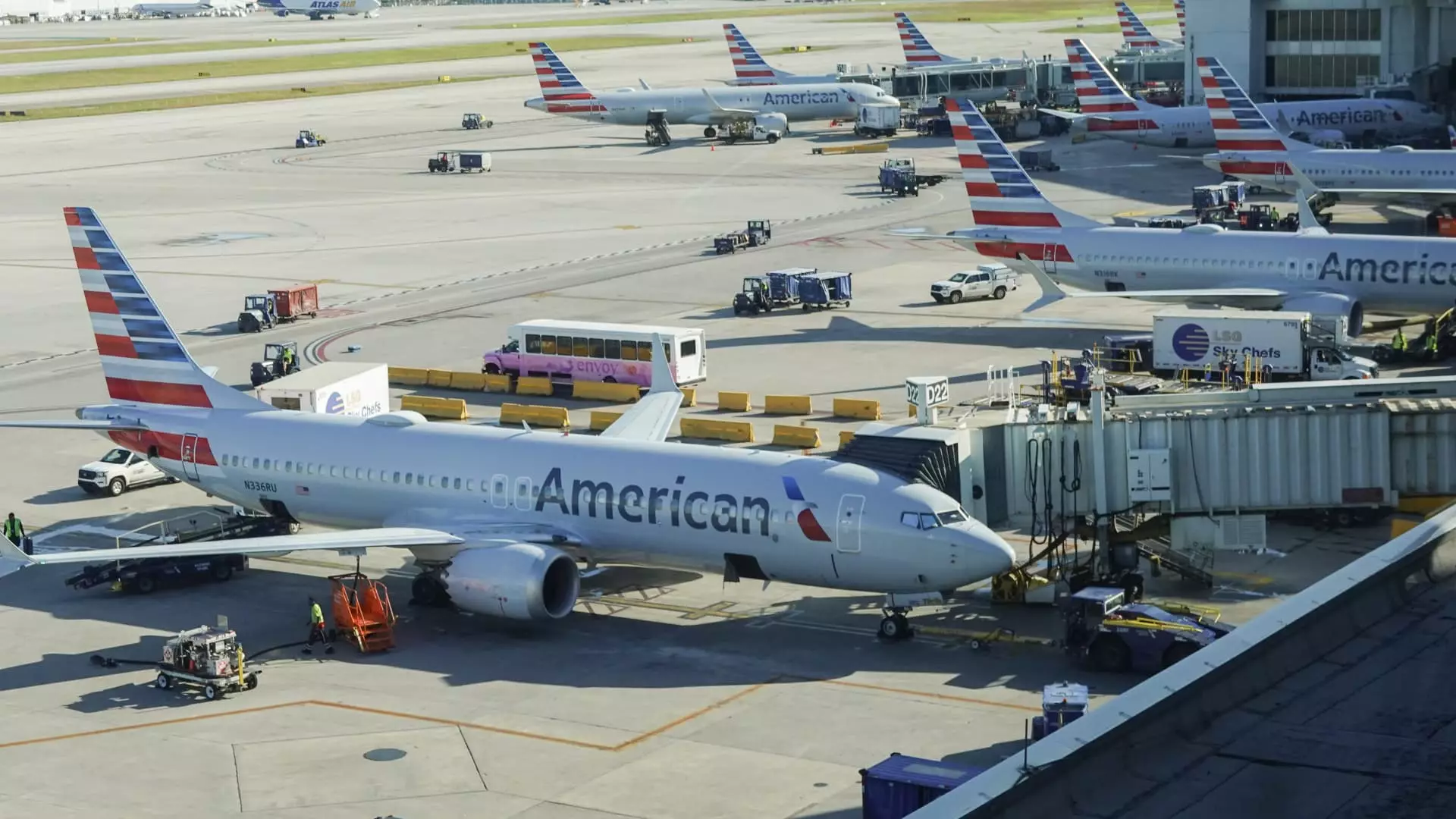On Tuesday morning, American Airlines found itself in a temporary crisis as it grounded its flights across the United States due to a significant technical glitch. This disruption unfolded during a critical period marked by heightened travel demand, as airlines brace for a holiday season anticipated to set records. Passengers were understandably frustrated, as travel plans were unexpectedly derailed, even if only for a short duration.
Fortunately, by 7:55 a.m. ET, the situation calmed down, allowing flights to resume. An airline spokesperson communicated to CNBC that the ground stop lasted for under an hour, providing a sense of relief for many travelers. This brief suspension was due to a network hardware issue linked to DXC Technology, the firm responsible for maintaining the operating platform essential for managing flight departures. Such platforms are integral to ensuring that important data, including an aircraft’s weight and balance, is accurately processed—information that is critical for a safe departure.
Understanding the Implications of Technical Failures
American Airlines acknowledged the disruption’s impact and issued an apology, recognizing the inconvenience it caused to customers eagerly hoping to reach their holiday destinations. The airline explained that they had proactively requested the ground stop, a common practice in the industry. Such measures help prevent overcrowding at airports when disruptions occur, allowing carriers to manage their schedules more effectively.
Moreover, it’s enlightening to consider this incident within the larger context of the airline industry’s reliance on intricate and sometimes outdated technology systems. In recent years, critical failures have underscored the vulnerabilities that can arise within this patchwork of technology. Incidents like the operational breakdowns experienced by Southwest Airlines during the holiday season of 2022 and Delta’s difficulties following a significant cyber incident in the summer of 2023 shed light on the pressing need for airlines to invest in more robust and integrated systems.
Impact on Holiday Travel Trends
The timing of this technical issue is particularly poignant, as airlines have been adjusting their schedules to mitigate the potential for operational mishaps during peak periods. For instance, American Airlines operated a more reduced schedule on Christmas Eve than on other days surrounding the holiday, which could have further exacerbated the situation. However, according to the airline, no cancellations directly resulted from the technical glitch, which, considering the circumstances, is a small consolation for those affected.
As the travel industry continues to evolve, with holiday seasons growing busier each year, the reliance on advanced technology is likely to increase. Establishing a more resilient infrastructure could enhance passenger travel experiences and reduce logistical challenges in the face of unforeseen disruptions. The recent incident serves as a stark reminder that while air travel has become more efficient, it remains vulnerable to the complexities of technology—a reality that airlines must navigate with diligence and foresight as they move into the new year.

